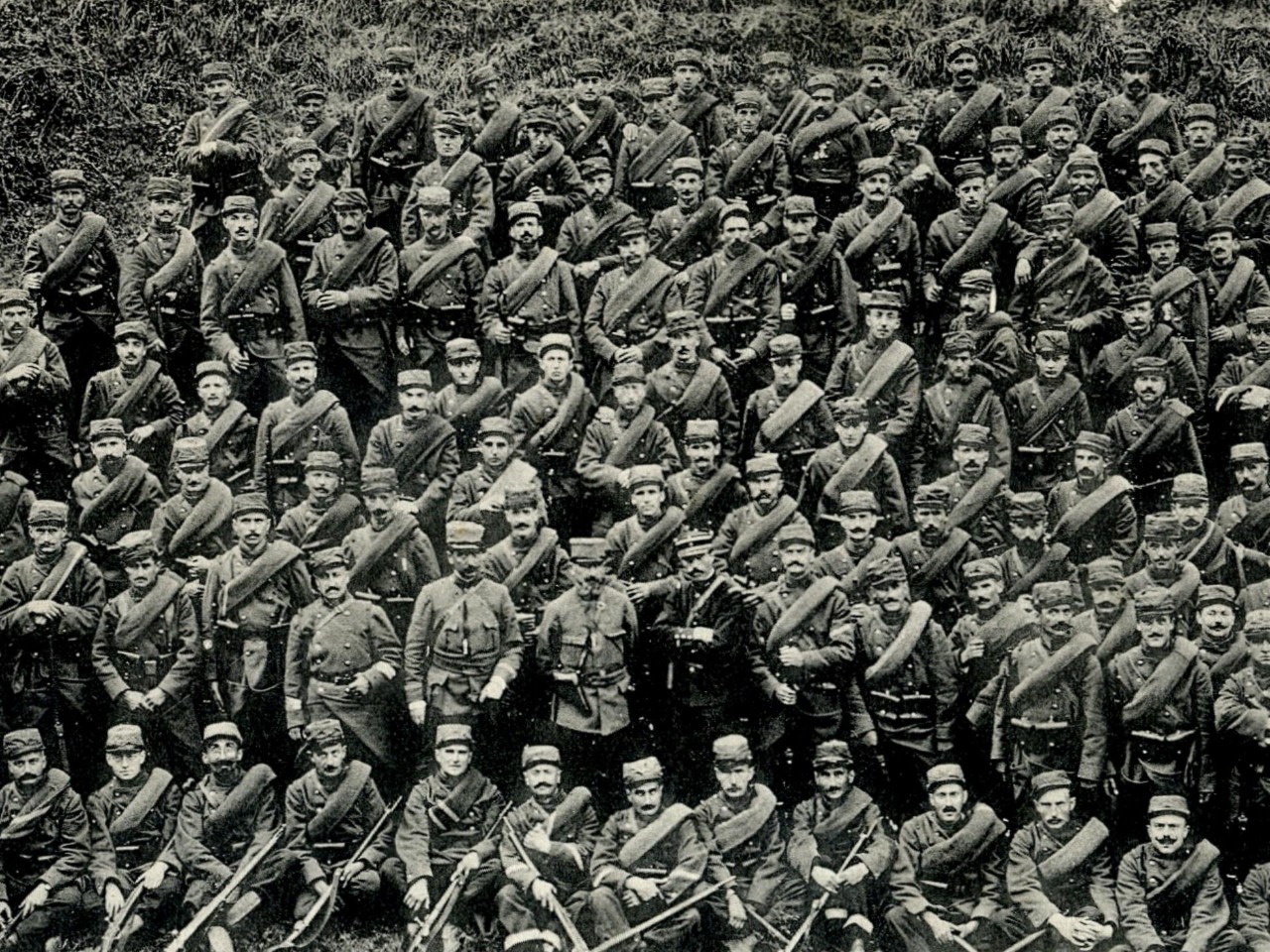First World War

European powers had granted Luxembourg the status of an independent and neutral state in 1867. When German troops invaded Luxembourg in 1914, it was in violation of this neutrality. At the end of the conflict, the country was isolated and at risk of losing its independence.
War breaks out
On 2nd August 1914, the German columns entered the country, clearly breaching its neutrality. Despite the protests of the government and the Grand Duchess Marie-Adelaïde, the Germans occupied all the country's key points, including the rail network. It was deemed indispensable for the German war effort, prized just as much as the iron and steel industry.
The German headquarters was set up in Esch-sur-Alzette, from which the capture of the Longwy fortress was coordinated. The occupation was limited to the military, while Luxembourg's political institutions remained untouched during the war.
In light of the news of massacres in Belgium, the government, led by the Minister of State Paul Eyschen, called for calm on the part of the Luxembourg population and continued to observe absolute neutrality towards all the parties involved in the conflict. As a result of this position, the allies made reproaches to Luxembourg in the wake of the hostilities.
Shortages and trade unions
During the occupation, the major problem facing the population was the provision of supplies. The state of war rendered the importing of supplies to compensate for the insufficiencies of national production impossible. The government introduced rationing and imposed maximum prices to curb inflation. The result was a flourishing black market and a high level of tension between the cities and the countryside.
Shortages, price increases and loss of purchasing power triggered social conflict. The dissatisfaction drove labourers to organise themselves into trade unions. In September 1916, the first two trade unions of the steel industry were born, one in Esch-sur-Alzette in the iron ore region, the other in the capital. A strike broke out in the steel sector in 1917 and was harshly repressed by the German army.
Fighting against Germany
From the start of the war, there were also some people who stood with the allies. Around 3,000 Luxembourgers joined the ranks of the French Foreign Legion during the war, including François Faber who won the Tour de France in 1909. Other Luxembourgers became citizens of their country of residence to join the regular troops in France, Belgium, Canada and the United States. A large number of them never saw their homes again.
Simultaneously, a British espionage network was created n Luxembourg. It played a major role in the defeat of the last great German offensive of 1918.
The end of independence?
As the hostilities subsided, Luxembourg was a country marked by serious internal dissensions and at risk of losing its independence.
The Grand Duchess Marie-Adelaïde was criticised by socialist and liberal parties for having had relations with the German Emperor Wilhelm II. Her favouritism of pre-war right-wing politics took on renewed relevance. On 9th January 1919, the volunteer corps (Luxembourg army) revolted and a committee of public safety declared Luxembourg a republic. French troops were required to disperse the crowds and arrest those behind the coup.
On an international level, the Luxembourg government also had to face criticism with regard to the Grand Duchess. France and Belgium were carrying out secret negotiations, which, at a certain time, made plans to incorporate the Grand Duchy to Belgium.
Caught in the cross-fire between Luxembourg's public opinion and international schemes, Marie-Adelaïde decided to abdicate and let her younger sister Charlotte take the reins on 15th January 1919.
A referendum saves the country
With a view to defusing the crisis, the Luxembourgish government decided to organise a double referendum on the form of the state (monarchy or republic) and on the country's economic direction following the denunciation of the Zollverein, the economic union dominated by Prussia, of which Luxembourg was a member since 1842. The aim of the referendum was two-fold: publicly assert the will of the Luxembourgers to remain independent - a principle backed by the President of the United States Woodrow Wilson - and strengthen the legitimacy of the new Grand Duchess.
The referendum was the first of its kind where all Luxembourgers participated. In fact, women were granted the right to vote in 1919. On 28th September 1919, a vast majority of people voted in favour of keeping the monarchy (80%) and for an economic union with France (73%). France, however, desisted and advised the Luxembourg government to turn towards Belgium. Following harsh negotiations, the agreement establishing the Belgian-Luxembourg Economic Union (UEBL in French) was signed in 1921.
The UEBL still exists today. While their cooperation was initially limited to the areas of economics and finance, it stretched further in 2004 by also encompassing administrative and political cooperation.
Last update

